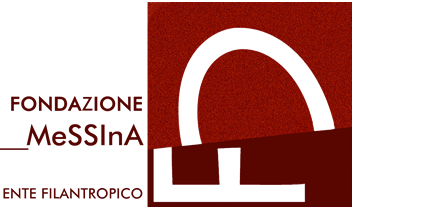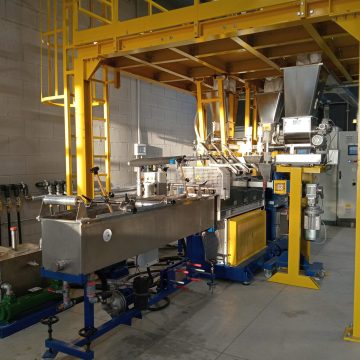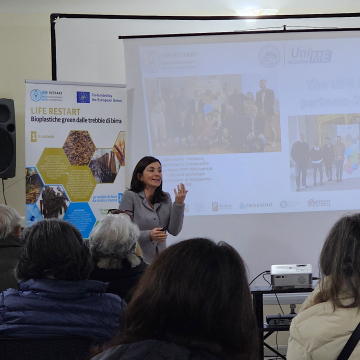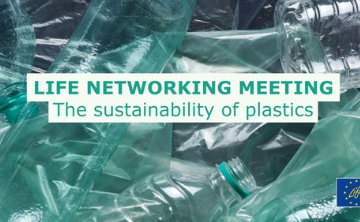UNIME shares research with the territory, starting with green bioplastics
Reuse of bEer SpenT
grAin
foR bioplasTics
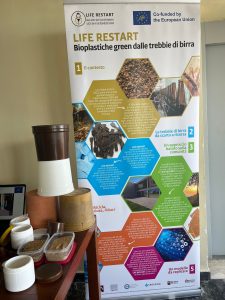 On Tuesday, September 24, at the Horcynus Orca Foundation, the event, “A Sustainable Agenda for Messina 2025: a prototype within the VI district,” was held, an initiative promoted by the Department of Engineering of the University of Messina, a partner in the European project LIFE RESTART.
On Tuesday, September 24, at the Horcynus Orca Foundation, the event, “A Sustainable Agenda for Messina 2025: a prototype within the VI district,” was held, an initiative promoted by the Department of Engineering of the University of Messina, a partner in the European project LIFE RESTART.
A day of connection between the University and the territory with the idea of involving all intermediary structures interested in embracing a common action and reasoning together on some of the goals identified by the United Nations in Agenda 2030.
The importance of knowledge sharing
Among the goals that the UNIME Department of Engineering sets itself, in fact, those pertaining to the third mission play a particular role, more specifically the dissemination of its research work, sharing knowledge and exchanging experiences with the citizenry.
After the institutional greetings to open the event was a panel discussion with personalities from various fields: from academics and research to representatives of the VI district, not only institutional.
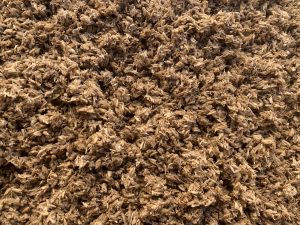 This was followed by a discussion among referees, partners and citizens with visits to the various exhibition stands, each of which illustrated the research work carried out by UNIME on highly topical issues: from energy transition (with a focus on third-generation photovoltaics) to the recycling of agro-food waste, via seismic safety. All extremely topical and important topics, especially for the city of Messina.
This was followed by a discussion among referees, partners and citizens with visits to the various exhibition stands, each of which illustrated the research work carried out by UNIME on highly topical issues: from energy transition (with a focus on third-generation photovoltaics) to the recycling of agro-food waste, via seismic safety. All extremely topical and important topics, especially for the city of Messina.
A booth dedicated to LIFE RESTART bioplastics
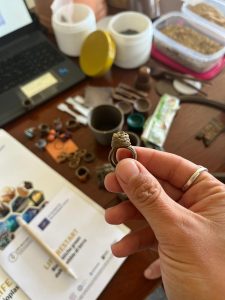 Professor Annamaria Visco, UNIME’s scientific manager for the project, presented prototypes made with the new LIFE RESTART bioplastics and illustrated the work behind them: the recycling of agrifood waste and, more specifically, of waste grains from beer production.
Professor Annamaria Visco, UNIME’s scientific manager for the project, presented prototypes made with the new LIFE RESTART bioplastics and illustrated the work behind them: the recycling of agrifood waste and, more specifically, of waste grains from beer production.
Among the prototypes made by some of the project’s stakeholders, for example, bioplastic pots that, once buried in the ground, biodegrade entirely within a calendar year.
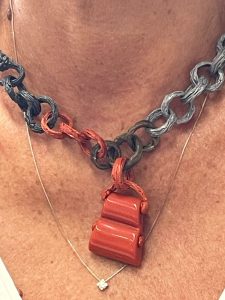 They were made by newly acquired partner Giardineria Italiana. Then again, among other things, legos and designer jewelry.
They were made by newly acquired partner Giardineria Italiana. Then again, among other things, legos and designer jewelry.
Many curious visitors were interested in this innovative biomaterial and its possible applications.
Co-funded by the European Union. Views and opinions expressed are however those of the author(s) only and do not necessarily reflect those of the European Union or CINEA. Neither the European Union nor the granting authority can be held responsible for them.

